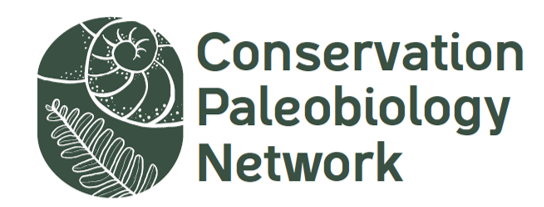
All conference participants must agree to follow our Code of Conduct when they register. The Code of Conduct can be read below.
By clicking the registration link below, I agree to the Code of Conduct.
2nd Conservation Paleobiology Symposium – Code of Ethics and Professional Conduct
Introduction: The Conservation Paleobiology Network strives to provide a safe and supportive environment for all participants of the 2nd Conservation Paleobiology Symposium and associated activities, to be held February 2023 in Gainesville, FL. By participating in the event and any associated activities, the event participants agree to adhere to this Code of Ethics and Professional Conduct.
Participant Expectations: Participants will treat others with dignity and respect, regardless of their own or another’s race, color, national or ethnic origin, immigration status, religion, age, marital status, parental status, sex, sexual orientation, gender identity or expression, socioeconomic background, educational background, disability, or military service or veteran status. Participants will not practice, incite, encourage, or condone prohibited behavior.
Prohibited Behaviors: Prohibited behaviors that may result in disciplinary action include:
- Harassment, including sexual harassment, denigrating jokes, stereotyping, microaggressions, and physical abuse or intimidation;
- Verbal or written abuse or intimidation (in-person or remotely), including but not limited to: harmful or negative comments related to race, color, national or ethnic origin, immigration status, religion, age, marital status, parental status, sex, sexual orientation, gender identity or expression, socioeconomic background, level of education, disability, or veteran status;
- Violating the previously communicated (verbally or nonverbally) physical, emotional, and sexual boundaries of others through the continuation of otherwise prohibited behaviors, or through verbal or written comments founded on any personal aspect of another individual;
- Intentional, unwelcomed physical behaviors (in-person or remotely), including but not limited to: stalking, physical contact, and aggressive or intimidating displays and/or body language;
- Threats (real or implied) of professional, physical, financial, or emotional harm
Reporting an Allegation of Conduct Violation: If one is subject to or witnesses prohibited behavior, they should notify in writing the network’s email address <conservationpaleo@floridamuseum.ufl.edu>. Anyone subject to or witnessing behavior that constitutes an immediate or serious threat to public or individual safety or a criminal act should contact local law enforcement. Those witnessing a potential criminal act should also take actions necessary to maintain their own personal safety. All documents and information pertaining to such allegations should be treated with the highest degree of confidentiality by those involved in the investigation process insofar as said confidentiality would not reasonably interfere with law enforcement related to such an incident or result in physical, professional, or psychological harm to any party during the course of the investigation or outside of the scope of any sanctions, should they be applied. Individuals involved in a reported incident of alleged misconduct, including victims, witnesses, and those alleged to have engaged in prohibited behavior(s), will not engage in retaliatory behavior during or after the reporting process. Engaging in retaliatory behavior will be deemed a breach of these guidelines. If allegations pertain to criminal activity or pose a reasonable risk to public safety, the allegation(s) will be reported to the appropriate authorities. An allegation report must contain the following information:
- The name(s) and affiliation(s) of the individual(s) submitting the allegation, the victim(s), and the name of individual(s) alleged to have engaged in the prohibited behavior(s), if known. If not known, then any possible identifying information should be provided.
- A description of the allegation that includes the date (or range of dates) and circumstances of the alleged misconduct, and the name(s) and affiliation(s) of all parties involved, including any witnesses.
- Any documents or other relevant items (e.g., written or digital correspondence, physical evidence, etc.) with annotation detailing how the item relates to the allegation.
- An explanation of the type of prohibited behavior(s) as defined in this Code of Conduct that are being alleged.
- A statement explaining any real or reasonably perceived conflict(s) of interest related to any parties named in the allegation and/or the members of the Symposium Organizing Committee. This is to ensure a fair and unbiased process. A conflict of interest does not preclude the filing of an allegation.
Allegations may be returned if they do not contain the above information.
The Organizing Committee and Its Role in the Review of Allegations of Misconduct: The Symposium Organizing Committee is responsible for investigating reported allegations and will determine which allegations are substantial and thereby require investigation. The co-chairs of the committee will coordinate the investigations of misconduct. All investigations will be conducted under strict confidentiality when such confidentiality would not reasonably result in the physical, professional, or psychological harm to any party and when the allegations do not pertain to a crime. The person who reported the allegation and the subject(s) of the report will be notified in writing that the report has been received and that an investigation is being conducted, and they will be given an outline of the next steps that will be taken. A person who is the subject of the report also has the opportunity to respond to the allegations and provide information to the committee.
About this Document: The language and content of this document is modeled after the Codes of Conduct and Ethics Codes of societies within the disciplines of geology and paleontology, including the Geological Society of America, the Paleontological Society, and the Society of Vertebrate Paleontology. In some sections, the wording used is identical. This document was created on 3 November 2022.

